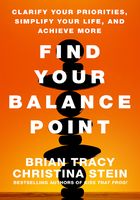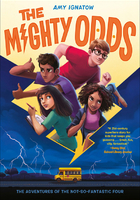Warriors deal with death. They take life away from others. This is normally the role of God. Asking young warriors to take on that role without adequate psychological and spiritual preparation can lead to damaging consequences. It can also lead to killing and the infliction of pain in excess of what is required to accomplish the mission. If warriors are returned home having had better psychological and spiritual preparation, they will integrate into civilian life faster and they and their families will suffer less. But the more blurred the boundary is between the world where they are acting in the role of God and the world where they are acting in an ordinary societal role, the more problematical the reintegration becomes.
The sun had struggled all day behind monsoon clouds before finally being extinguished by the turning earth and the dark wet ridges of the Annamese Cordillera. It was February 1969, in Quang Tri province, Vietnam. Zoomer lay above my hole in monsoon-night blackness on the slick clay of Mutter's Ridge, the dark jungle-covered ridge paralleling Vietnam's demilitarized zone where the Third Marine Division and the North Vietnamese Army had struggled together for two years. A bullet had gone through Zoomer's chest, tearing a large hole out of his back. We kept him on his side, curled against the cold drizzle, so the one good lung wouldn't fill up with blood. We were surrounded and there was no hope of evacuation, even in daylight. The choppers couldn't find us in the fog-shrouded mountains.
I heard Zoomer all night, panting as if he were running the 400, one lung doing for two and a body in shock. In and out. In, the fog, the sighing sound of monsoon wind through the jungle. Out, the hot painful breath. Zoomer had to go all night. If he slept, he'd die. So no morphine. Pain was the key to life.
To help him stay awake, and to calm my own fear, I'd crawl over to him to whisper stories.
I grew up in Oregon, where as a teenager I worked with my grandfather Axel on his fishing boat at the mouth of the Columbia River. One night in June 1959 a dull thunk startled us into alertness as a heavy body slammed into the four-football-fields-long gill net. The body's weight made the cork line, which floated on the surface and from which the net hung like a curtain, sink beneath the cold salt water. We approached the large gap in the cork line quietly, me steering the thirty-foot fishing boat in the dark, Grandpa Axel in the bow with the rifle, worried that it was a sea lion. A sea lion could destroy the net, which next to the boat itself was Grandpa's most valuable investment. My spine prickled when I saw the plated body of a seven-foot green sturgeon slowly undulating, eerie and ghostlike, beneath the dark water.
It took everything both of us had to haul the sturgeon into the boat, several hundred pounds at nine cents a pound and not much tearing of the net. Grandpa Axel was pleased. He and I heaved the sturgeon into the built-in fish box that temporarily held the salmon until we could put back in to Scandinavian Station. That was where we unloaded and weighed our catch, bobbing on the swell beneath the crane that hoisted the fish boxes up to the waiting ice, Grandpa impatient to get back to fishing, me happy to be idle.
That night when we hauled in the sturgeon, we still had plenty of room in the fish box, so we continued fishing. The sturgeon lay there, alive, its wet scales reflecting starlight. It seemed an ancient thing from before the dinosaurs, breathing there, too primitive and rugged to die quickly like the more complex and finely tuned salmon. I kept going over to watch it.
In-Spiritus. Out-Sanctus. Those were the words that came to me as I watched its gills pumping the alien air. In comes the spirit, out goes something holy, life perhaps, but I realized then that the "in" and the "out" are somehow the same thing and everything is touched by the holy when in the presence of death.
I watched Zoomer pumping air, hanging on to life with that same primitive doggedness of the sturgeon for all that night and most of the next day before the fog lifted enough to get in a medevac bird. Others died, like the salmon, but Zoomer kept pumping, enduring the shelling with the rest of us, waiting for the fog to clear, waiting for the helicopter that would take him home. It came. As the fog closed in again, just minutes after the helicopter got Zoomer out alive, I realized that the mystery of life and death had once again played out before me and that once again I was in a sacred space and, other than in my role as a walking weapons guidance system for the United States of America, totally unprepared to be there. The Marine Corps taught me how to kill but it didn't teach me how to deal with killing.
I first became conscious of this wartime sacred space, this temple of Mars, several months before Zoomer won that race with death. It was Christmastime 1968. I was the commander of a Marine rifle platoon. A rifle platoon at full strength consisted of forty-three Marines, but that winter we struggled against malaria, jungle rot, dysentery, and the North Vietnamese Army to keep our strength above thirty. Although I could radio in my position down to six grid points, I no longer knew where the hell I was spiritually. That more innocent, and certainly more spiritually connected, fourteen-year-old on his grandfather's fishing boat hadn't yet had his instinctive links to the spiritual world sawed away by eight years of high school and college and, finally, severed by military training.
Our company of three platoons had just secured the top of a mountain for a new artillery firebase, high in the cordillera where Laos met the old demilitarized zone that divided North Vietnam from South Vietnam. We were far from help and, after attrition from disease and firefights, my platoon was down to twenty-five. After nearly a month of continual moving through the jungle, eating only canned food, without the ability to wash properly or change clothes, some of the Marines were so covered with ringworm and jungle rot that they worked naked to lessen the discomfort. Rain and swirling fog delayed the hoped-for move of the artillery battery. Then, after only two of the normal complement of six 105mm howitzers had arrived, and a limited amount of ammunition, the rest of the regiment got into a fierce fight in the lowlands about 30 kilometers to our east and needed every-Marine, weapon, and helicopter they could get. The regimental commander took a calculated risk and ordered my single undermanned platoon and some volunteers to stay behind to guard the howitzers and their crews and sent the rest of the company to reinforce the lowlands operation.
I was left in charge of the firebase. I alone would make all the decisions and count my mistakes with lives and pain. With the regiment stretched and the weather bad, there would be virtually no chance of reinforcements or resupply if the NVA attacked, for we were well inside the enemy's traditional operating area and well outside our own. If I blew it, or our luck was bad, we'd probably be overrun before help could reach us. I was afraid I would die. I held the lives of others in my hands. I had entered the temple of Mars, where not only were humans sacrificed, including me, but I was also the priest. This priest, however, had only been to a seminary called the Basic School where he learned the ritual moves but none of the meaning.
We patrolled hard and ceaselessly in terrain so steep and difficult we often had to use ropes to get up and down the cliffs. On the radio we pretended to be a company so the enemy wouldn't know how vulnerable we were to attack. At night no one slept longer than an hour at a time. We placed our nighttime listening posts far from the lines, well down the southern approach on a hill so steep I could stand facing it and touch dirt by putting my hand straight out in front of me. The north side was a 1,600-foot cliff. Given the difficulty of getting back to the lines at night, we all knew our listening posts would probably be sacrificed to warn the rest of us.
One night, small teams of NVA soldiers tried infiltrating past our listening posts to probe our main defenses for weak points and determine the layout of our lines. One of those teams blundered right into a listening post and the three Marines called in fire from the two 60mm mortars that had been left to us by the company commander. On the second volley one round fell short, wounding all three kids in the listening post. Nine Marines and a Navy corpsman volunteered to go get them, six to carry the wounded and four to fight. I waited by the radio, sick with dread, as the rescue team stumbled through the dark jungle dragging the wounded back up the muddy slopes. One of the wounded Marines kept screaming obscenities until someone gagged him with a sock. When they were safely inside the lines I saw bits of his brain spattered on the inside of his jungle hat. If we were lucky enough to get them all out alive, I knew at least one kid would never function normally again.
We did get the wounded out alive because of the heroism of a helicopter crew from Marine Air Group 29 who flew through the mountains in total darkness as we guided them in over the radio by the sound of their engines and blades. They burst into sight only feet from us, barely avoiding crashing, our enlisted forward air controller, whom we called FAC-man, screaming over the radio that they were right on top of us. We had outlined the landing zone on top of the mountain by putting lighted heat tabs in our helmets. The zone was so small the CH-47 could get only its rear wheels on the ground, with the front of the bird hovering over the edge of the cliff.
The bird left us in the dark and we immediately sent out new listening posts. The next morning the ceaseless patrolling continued, as did the fog, both from the monsoon and from the endless ache for sleep. I, however, was dealing with a lot more than lack of sleep. I had come upon, for the first time and, sadly, not even close to the last time, the terrible feeling of responsibility and guilt for the death and wounds of my men. The mortars, like everything else on the hill, were under my command. When I examined the mortars the next morning, I discovered one of them had a slightly loose tripod leg that I should have discovered in my routine weapons inspections beforehand. It had probably shifted after the recoil of the first round, causing the next round to fall short. In combat, inattention to details can kill people.
No other birds got in after that brave medical evacuation because the monsoon had shut down all flying in the mountains. Two days before Christmas the fog lifted just enough to allow a single chopper to work its way up to us, a dangerous journey, squeezing beneath the cloud ceiling just a few feet above the jungle-covered ridges. Along with food, water, mail, and ammunition came the battalion chaplain.
He had brought with him several bottles of Southern Comfort and some new dirty jokes. I accepted the Southern Comfort, thanked him, laughed at the jokes, and had a drink with him. Merry Christmas.
Inside I was seething. I thought I'd gone a little nuts. How could I be angry with a guy who had just put his life at risk to cheer me up? And didn't the Southern Comfort feel good on that rain-raked mountaintop? Years later I understood. I was engaged in killing and maybe being killed. I felt responsible for the lives and deaths of my companions. I was struggling with a situation approaching the sacred in its terror and contact with the infinite, and he was trying to numb me to it. I needed help with the existential terror of my own death and responsibility for the death of others, enemies and friends, not Southern Comfort. I needed a spiritual guide.
Many will argue that there is nothing remotely spiritual in combat. Consider this. Mystical or religious experiences have four common components: constant awareness of one's own inevitable death, total focus on the present moment, the valuing of other people's lives above one's own, and being part of a larger religious community such as the Sangha, ummah, or church. All four of these exist in combat. The big difference is that the mystic sees heaven and the warrior sees hell. Whether combat is the dark side of the same vision, or only something equivalent in intensity, I simply don't know. I do know that at age fifteen I had a mystical experience that scared the hell out of me and both it and combat put me into a different relationship with ordinary life and eternity.
Most of us, including me, would prefer to think of a sacred space as some light-filled wondrous place where we can feel good and find a way to shore up our psyches against death. We don't want to think that something as ugly and brutal as combat could be involved in any way with the spiritual. However, would any practicing Christian say that Calvary Hill was not a sacred space? Witness the demons of Tibetan Buddhism, ritual torture practiced by certain Native American tribes, the darker side of voodoo, or the cruel martyrdom of saints of all religions. Ritual torture or martyrdom can be either meaningless and terrible suffering or a profound religious experience, depending upon what the sufferer brings to the situation. The horror remains the same.
Combat is precisely such a situation.
Our young warriors are raised in possibly the only culture on the planet that thinks death is an option. Given this, it is no surprise that not only they but many of their ostensible religious guides, like the chaplain with the booze, enter the temple of Mars unprepared. Not only is such comfort too often delusional; it tends to numb one to spiritual reality and growth. Far worse, it has serious psychological and behavioral consequences.
To avoid, or at least mitigate, these consequences, warriors have to be able to bring meaning to this chaotic experience, i.e., an understanding of their situation at a deeper level than proficiency in killing. It can help get them through combat with their sanity relatively intact. It can help keep them from doing more harm than they need to do. It is also a critical component in their ability to adjust when they return home. This "adjustment" is akin to asking Saint John of the Cross to be happy flipping burgers at McDonald's after he's left the monastery. When one includes drug and alcohol overdoses, single-person car crashes, fights in bars, and a whole host of other self-destructive behaviors in addition to so-called normal suicides, the number of veterans who have killed themselves at home after the war was over is disturbingly large-and largely ignored.
You can't force consciousness or spiritual maturity. Teenage warriors like to fight, drink, screw, and rock and roll. You can, however, put people in situations where consciousness and spiritual maturity can grow rapidly, if those people know what to look for. It's called initiation.
Joseph Henderson, who died in 2007 at the age of 104, was one of the pioneers of Jungian analysis and a world authority on initiations. He once explained to me that there are two broad categories of initiation experiences. The first kind prepares the individual to fulfill an adult role in his or her society. Traditionally it was where the boys learned to accept the danger and responsibility involved in hunting and the girls learned to accept the danger and responsibility involved in childbirth. The second kind goes beyond societal roles and is of a spiritual nature. It is about accepting one's mortality. It is about facing death. To fully mature as individuals we need to undergo both kinds. In our culture individuals now must do initiatory rites on their own. Some do and some don't. A lot of people in our culture simply never grow up.
There is no longer one simple initiation rite of the kinds with which we are most familiar, those of the hunter-gatherer cultures such as the hunger and terrifying dreams of the Native American vision quest or the pain inflicted on young Aboriginal boys and the terrifying sounds of the bullroarers, secret ritual instruments forbidden, upon pain of death, for the noninitiated even to hear. In our culture we mostly undergo a series of partial initiations and we undergo them unconsciously and without guidance.
Boot camp was an initiation of the first kind, societal. I arrived at Quantico, Virginia, on a bus from the Port Authority in New York, to be met by screaming drill instructors in the middle of a muggy June night. There I was run through a succession of supply huts collecting gear, sweating in my civilian clothes, got my hair cut off, and finally fell exhausted into bed. In what seemed like five minutes I was shocked awake by sudden glaring lights splitting the humid darkness, a crashing metal garbage can being kicked down the squad bay by a rampaging madman, people being dumped-thin mattresses and all-onto the clammy concrete floor, and bewildering shouting and cursing as we desperately tried to pee, shave, shit, and get dressed in far too little time.
I survived the hazing and harassment, the drills and the spills, but the incident that actually altered my consciousness, that prepared me for the societal role of a Marine instead of a high school kid, occurred because I slapped at a mosquito during a talk by the drill instructor while we were out on a night field problem. He had me strip down to my shorts and marched me into a nearby swamp where he ordered me to stand at attention. My unprotected body was soon covered with mosquitoes.
The drill instructor would return to check on me periodically, asking if I'd had enough. I'd shout out the requisite "No, sir!" and he'd leave. By the time a half hour had gone by, it hurt. After around forty-five minutes I was covered with red welts. I could feel blood trickling down my body. I could feel the mosquitoes inside my shorts biting my testicles. But I had decided this was a test I wasn't going to fail.
I remember the drill instructor standing in front of me on his fourth trip back, eyeball to eyeball, looking right inside me. This time he didn't ask me if I wanted to quit. After a while there was an almost imperceptible change in his eyes. His head nodded just a fraction. Then he ordered me back into my clothes, shouting at me for being so stupid as to stand naked in a swamp filled with mosquitoes.
From that moment on I knew that this frightening black man had accepted me into his group, which he often referred to as "my Marine Corps." From that moment on I started thinking of myself differently. I felt proud. I was a Marine. I still feel proud to be a Marine. But there was one very critical issue that was missing from this particular passage of mine-the spiritual. I did connect with something larger than myself, the Marine Corps, but that is a long way from connecting with something larger than myself such as humanity or God.[1] My loyalty was to the U.S. Marines, and to Marine ancestors, not the ancestors of my people, who in the modern world are all people.
The uninitiated often think that Marine boot camp is stupid or even sadistic. Clearly, getting bitten on the testicles by mosquitoes wasn't training me to shoot straighter or attack smarter. But before society sends high school kids to do our killing in battle, those kids have to transform the way they think of themselves, or they are not going to be very effective killers. Worse, they will be more likely to endanger others. Lacking discipline on an ambush or losing concentration on a listening post by slapping a mosquito, or even scratching a mosquito bite, can get you and everyone else killed. At the very least, lack of discipline under extremity will make the whole organization less effective at killing. And killing is what we are asking these kids to do. This isn't done without a major psychological transformation, unless we're already dealing with a criminal mind, and it has to be done quickly. Our society invented boot camp to do this. Boot camp doesn't turn young men into killers. It removes the societal restraints on the savage part of us that has made us the top animal in the food chain.
Part of my own spiritual initiation was that awareness of death on Axel's fishing boat, but spiritual initiation got a major booster shot the last weekend before graduation from boot camp. This was the first time we were allowed liberty; we got twelve hours to go off base. Most of us were headed for Washington, D.C., the nearest big city.
Come Saturday morning we weren't just feeling cocky; we felt invincible. We were fifteen pounds heavier and lean as snakes. We were Marines. My particular invincible band left Quantico for Washington on the noon bus: four of us, including Perkins. Perkins was a wiry kid, cocksure and quick and with a short fuse. We'd been in town a couple of hours, bathing ourselves in the air-conditioning in Benny's Rebel Room and drinking cold beer, the result of very poetic interpretations of the birth dates on our driver's licenses, when Perkins said, "Let's go over to the Cap 'n' Guys." I looked at my two other friends. They looked at their beers. The Cap 'n' Guys was reputed to be the toughest bar in D.C. No one, however, wanted to tell Perkins no. So we all went out into the blinding afternoon and walked the several blocks to the Cap 'n' Guys.
Three very sour-looking guys wheeled on their bar stools when we pushed in through the glass door, rattling the dirty venetian blinds. Two other guys were talking at a back table. They were all in their late twenties or early thirties, a little overweight, old men to our nineteen-year-old minds, some even starting to show beer bellies. Shit. This didn't look like such a tough bar.
We ordered four pitchers of beer and took them with us to a back booth where the condensation puddled on the Formica tabletop, making our glasses stick just slightly every time we lifted them to drink.
We had about half-emptied the pitchers when Perkins walked down to the jukebox and punched up a dollar's worth of music. He was walking back to our booth when one of the sour-looking trio at the bar turned on his stool and said, "I don't like nigger music."
Perkins, white and southern, said quietly, "It ain't nigger music. I'm playing it." He slid into the booth next to me. I started to hear the dim sound of warning bells through the fine alcoholic haze.
"I said I don't like nigger music, jarhead." The man's two friends were now turned our way, as well as the two guys at the back table. Jarhead was what you called Marines if you didn't want to be friendly.
The warning bells were now going full blast. I cut in and said, "It's only a dollar's worth. Sorry."
Perkins gave me a "What the hell are you doing?" look. I poured him some beer. The three guys turned back to their drinking, apparently mollified.
We tried to resume talking, but this unanswered threat in the air inhibited us. Finally, I said in a low voice, "Let's go back to the Rebel Room."
"They're a bunch of fat turds," Perkins hissed. "You going to let them run us out of here?"
"They're not running us out. We're just leaving."
I gulped the rest of my beer and set the glass down firmly. Three of us got up, but I had to climb over Perkins, who scowled at the Formica. We were squinting in the bright light again when he pushed out through the door onto the street. There, Perkins talked about pride. He persuaded my two friends to go back inside with him. I headed for Benny's Rebel Room alone, feeling bad about my lack of pride.
I hadn't even sat down with my onion rings when one of the guys who had stayed with Perkins came running into Benny's saying Perkins had been beaten up. Perkins had gone back inside and punched up another dollar's worth of "nigger music." He had then ordered two more pitchers of beer and, when he walked over to the bar to wait for them, had apparently deliberately chosen to be sloppy with his elbow. The one who didn't like nigger music said some more unkind things about Marines. Perkins said something back, not very original, and picked up the two pitchers from the bar. The man started pushing Perkins lightly with his fingers on his chest, backing him across the floor, slopping bits of beer from the pitchers onto Perkins's freshly ironed civilian shirt.
It was Death Before Dishonor time for Perkins. Pure ego. He threw the beer in the guy's face. Lack of recognition of his own mortality.
Fighting on television lasts long enough to entertain people. Fighting in bars doesn't have the same purpose. Perkins was on the floor in about two seconds, writhing in agony from kicks to his kidneys, blood streaming from his face where the guy had stomped him. The other two guys had trapped my two friends in the booth. One of them had a switchblade out.
The Marines surrendered.
We got Perkins into a cab, and as I sat in the back with his bloody head on my lap on the way to Quantico I had a feeling of anxiety and foreboding. Even Marines can get hurt, even if we're in better shape than our opponents. Suddenly the war we were training for got real. I kept watching the trees go by outside the cab window and the grass on the median strip. Grief welled up in me. I knew I had strong odds of never seeing trees and grass again, just ordinary grass on a freeway median strip-so extraordinarily beautiful. Even today, when I walk on grass I feel as if I'm walking on someone's skin.
We were just able to get Perkins cleaned up enough to stand formation that evening. The drill instructor looked into his pulpy face long and hard. "You lost, didn't you, maggot."
"Yes, sir!" roared Perkins.
That night, while other platoons had the evening free in their squad bays to get ready for Sunday's graduation, clean gear, write letters, our whole platoon was out running and doing push-ups, punishment for losing. We ended up on the obstacle course sometime near midnight doing push-ups in the dark until, one by one, we dropped from exhaustion. I remember lying in the dust, gasping for air, when the brilliantly polished boot of the drill instructor toed me over. "Get on your feet and tell me what happened."
I told him.
"Jesus Christ, the Cap 'n' Guys. Perkins I can understand, but I thought you had more brains. And you let him go in there? Shee-it, Marlantes." He assigned me fire watch that night (no sleep) for being stupid and for not keeping Perkins out of trouble.
At the level of turning boys into shock troops for American society, the drill instructor had to teach the lesson that no matter how tough things got, there was more in you. You never quit. He also had to teach that if one is hurt, all are hurt; so Perkins ran with us the whole time. We had to help him, but he made it through, and we all felt that Marine pride again. I learned about thinking before I got into a fight. I also learned that smart people, no matter how fit, don't go looking for fights with seasoned bar fighters.
The drill instructor did his job well. We soon forgot all about the Cap 'n' Guys and were once more invincible shock troops knowing that there were no defeats, just temporary setbacks, and no pain too great to keep you from winning. These are critical lessons that any reasonable society would want to inculcate in its shock troops and also a large part of the reason society uses eighteen- to twenty-two-year-olds to do its fighting. This age group combined with these societal initiation rites produces good fighters. Months later, in Vietnam, I was in situations where any reasonable person would have quit, but I had become a Marine and Marines aren't reasonable people. Quitting is unthinkable and pain is just weakness leaving the body.
These, however, are societal, not spiritual, lessons; a drill instructor's job isn't spiritual guidance. What had hit me in the cab going back to Quantico was beyond the initiatory rites for which a drill instructor is responsible. So when the shit hit the fan I wasn't spiritually prepared. When I did eventually face death-the death of those I killed and those killed around me-I had no framework or guidance to help me put combat's terror, exhilaration, horror, guilt, and pain into some larger framework that would have helped me find some meaning in them later. Maybe if the right person had shown up for me that Christmas in Vietnam, he might have started me on an inner journey that could have saved me and my family a lot of grief. It would have been a relief to me to talk about my terror. That particular visitation by the chaplain was like somebody visiting a dying friend and talking about the weather. We don't talk about death in our society. Even the chaplains. Even when it's all around us.
War, however, blows away the illusion of safety from death. Some random projectile can kill you no matter how good a soldier you are. Escaping death and injury in modern warfare is much more a matter of luck-or grace-than skill, and this is a significant difference from primitive warfare. In a combat situation you wake up from sleep instantly aware that this could be the last time you awake, simultaneously grateful you're alive and scared shitless because you are still in the same situation. Most combat veterans keep this awareness-that death is just around the corner. We know that when we drive the freeway to work we could be dead within the next hour. It's just that the odds have changed greatly in our favor from when we were in combat. It's the difference in the odds of getting killed that makes combat a noticeable experience of one's mortality and going to work on the freeway an unnoticed one.
Noticing is another word for awareness or consciousness. Understanding that combat will be a dark and terrible initiation before one goes into combat will help provide some structure and meaning to this soul-battering experience. A large part of treating PTSD is simply getting the veteran to remember and talk about what happened to him. The more psychic structure or framing that is brought to the experience of combat, the easier it will be to cope with the experience afterward. It can help provide a bit of meaning in an often meaningless situation. As it is, young warriors' minds and souls are going to be battered and overwhelmed. Killing someone will affect you. Part of you will think you've done something wrong. It's drilled in from babyhood. If, however, you're prepared ahead of time for it, you'll suffer less because this knowledge and structure will add a thin layer of armor. Why put on the armor after the war? This is what I did.
I remember, even five years after I got home, laughing with combat veteran friends about all this bullshit about bad dreams and weird behavior as a result of combat. I was just fine. This is because I'd shoved the whole experience deep into my unconscious. Funny how I just did high-adrenaline jobs for years, constantly on the move. My oldest daughter has pointed out to me, more than once, that in one eight-year period she attended twelve different schools.
It is bad enough that we send our youth off to fight our wars ill prepared for the spiritual and psychological consequences of entering combat. Add to this the fact that combat is becoming increasingly intermingled with the ordinary civilian world. With cell phones, Facebook, Twitter, air travel, and remote-control weaponry, the battlefield is less clearly defined and the bloody consequences of what modern weapons do can be completely masked. Consider the bomber crews that fly from the United States and back to bomb Iraq or Libya, telling their spouses and kids they'll be gone a little longer than usual that day; or the young woman pushing a button to launch a cruise missile from a naval vessel on a serene sea hundreds of miles from the "target," known to his mother as Alim; or the pilots doing nine-to-five jobs at computer consoles in Nevada killing people in Iraq and Afghanistan with drones and commuting to and from their homes like any other commuters. Imagine the psychic split that must ensue from bringing in death and destruction from the sky on a group of terrorists-young men who have mothers and a misplaced idealism that has led them into horrible criminal acts, but nevertheless young and brave men-and then driving home from the base to dinner with the spouse and kids. "Have a nice day at the office, hon?"
Death becomes an abstraction, except for those at the receiving end. We must come to grips with consciously trying to set straight this imbalance of modern warfare. What is at stake is not only the psyche of each young fighter but our humanity.
I'm not against hot turkey at Thanksgiving. I would have loved some. What I'm arguing is that the chances of transformative psychological experiences are decreased enormously when you wage war with all the comforts of home. You have no easy way of knowing when you are in the sacred space of Mars and death or coming home from it. In World War II it usually took months to both go to and come back from war. In Vietnam we put people on airplanes and had them returning from combat in some cases in only a matter of hours. Today a soldier can go out on patrol and kill someone or have one of his friends killed and call his girlfriend on his cell phone that night and probably talk about anything except what just happened. And if society itself tries to blur it as much as possible, by conscious well-intended efforts to provide "all the comforts of home" and modern transportation and communication, what chance does your average eighteen-year-old have of not becoming confused?[2]
My own R&R was typical of this confusion of two worlds and the lack of psychic and temporal space between them
We were in the mountains north of Khe Sanh providing security for an artillery battery that was supporting two infantry companies in combat to our west, right on the Laotian border. The two companies ran into more trouble than they could handle alone and we were dropped in as close as we could to join the fighting.
I was scheduled to go on R&R the next day. I was pissed.
I had been in-country a long time. I still had fear, but after seeing so much dying a numb fatalism had masked it. Honestly, the foremost thing on my conscious mind was not the impending combat but that we'd soon be in the shit and I'd have to miss my R&R to Hong Kong, a destination for which quotas were often jammed and for which I had waited a long time.
We had to move hard and fast to reach the other companies, so we climbed a steep ridge where the jungle was still on fire from napalm. Bare trunks oozed boiled sap and smoke. All the leaves had been burned away, exposing us to a fierce tropical sun that oppressed us with white heat through the acrid greasy air. We were soon covered in black soot. It was in our throats, lungs, and eyes. We were under strict water discipline because when working up a ridgeline you're above the streams. We waded in ashes over our boot tops. The suffocating air smelled like oil. Sweat mixed with soot and glued our shirts and trousers to our skins. The water in our plastic canteens felt hot to the tongue.
Late that morning we reached the fighting. I lost more friends.
By midmorning the next day the skipper said I could make my R&R if I could find some way out of the bush on my own. I helped pack some wounded up to an LZ[3] hoping to get a ride in with them on a medevac chopper. The LZ was taking sniper fire and occasional mortar rounds. Unless the wounded were declared emergencies, the highest priority, no one was going to fly in for them, much less take some grunt out on R&R.
I sat there, stuck and despondent, trying to imagine Hong Kong, fuming because the company with the mission of eliminating the NVA snipers and mortars hadn't gotten its goddamn job done.
Then one kid got hauled in who was bleeding very badly in places the corpsmen couldn't stop, so the priority for the medevac got pushed up. Fifteen minutes later a lone Huey[4] worked its way up the steep ridgeline, the heat and altitude-thinned air making climbing difficult. As the chopper flared in I heard tubing, the popping explosions mortars make as the shells leave the tube to start the high arc to their destination. I had a feeling where that destination was going to be.
I wasn't going to be deterred. As the shells started exploding around the chopper, I helped pile all the wounded aboard, dragging them underneath the rotor blades, shoving the last Marine in like some mad train pusher in Tokyo. Then I just stood there, dumbfounded. There was no room left for me. I faced a wall of wounded men nearly falling out of the side opening of the Huey.
The corpsmen and stretcher-bearers ran for their holes and the chopper's rotor blades started picking up speed. The last Marine I'd pushed into the chopper had one arm in a sling. Since we'd sat together on the hill bitching, waiting for a bird, he knew I'd miss my plane out of Da Nang. R&R is sacred time to a grunt in quite another way. He shouted out, "Grab my hand. Ride on the skids."
I jumped for the door, trying to find the long metal landing skids underneath the Huey, locking my left arm with the wounded man's good arm. The bird was already in the air, the pilot unaware I was trying to get on. He was too busy figuring out how to get the overloaded chopper off the mountain and not get shot out of the sky. I managed to grab something in the door frame with my right hand. My M-16 was dangling from that arm by its sling and my legs were kicking empty space as the chopper tipped forward, heading for the edge of the landing zone. I knew the drill. With heavy loads in low-oxygen mountain air the pilots had to put the birds into a steep fast fall, falling downhill with the slope of the mountain instead of rising upward off the landing zone. This way they hoped to pick up speed in order to get sufficient lift and get safely airborne. Over the side we went in a rush, my body and legs dangling out of the chopper's side. I scraped the top of a splintered tree, painfully bruising my ankle.
The chopper made a tight banking turn, tipping to the right, and the Marine trying to hang on to me started to slip out of the open doorway into space. My own legs swung out away from the body of the chopper. Another wounded Marine managed to wrap an ammo sling around my helper's legs to stop him. Finally other wounded passengers tied their canteen belts around both of us, taking the strain away. I rode the entire distance to the hospital with my feet dangling over the jungle. When we touched down, since my feet were below the skids, I touched down before the chopper. Hermes landing with winged feet-and with trousers crusted from dried diarrhea and cum.
Six hours later, new clothes, new haircut, I was in an air-conditioned club in Da Nang called the White Elephant. No need for winged feet here; there were plush carpets on the floor. There were also American women in miniskirts and American men in short-sleeved white civilian shirts or starched and pressed uniforms. Ice tinkled in heavy glasses. For excitement, people rolled dice to see who would pay for drinks.
I sat at the bar squeezing pus from jungle rot and infected leech bites onto a paper napkin printed with the logo MACV, Military Assistance Command Vietnam. I felt a growing anger. Today, I know the anger had to do with the profanity of people carrying on drinking and schmoozing while my friends were, at that moment, dying. It also had to do with a tint of puritan anger at the decadence of it all and the fact that I was doing exactly the same thing they were. To numb all the conflicting feelings, I proceeded to drink too much.
Drawn by false courage and desire, I tortured myself further by moving as close as I thought wasn't rudely obvious to a Red Cross woman and her date, an overweight man who worked for AID.[5] They were talking about buying cars without paying duties. There was a German woman who'd set up an agency for Mercedes-Benz and was making a fortune. Then I heard the AID man tell the Red Cross woman he was getting hazardous duty pay for being in a combat zone.
This was months after my encounter with the chaplain. By this time in my tour I wasn't cool about anything. I was still a long way from enlightenment, but you don't have to be Jesus Christ to know when someone is pissing on the church floor. The rage came boiling out. I wanted to kill him for profaning and demeaning the words "combat zone." I made a fuss.
I was escorted from the club by a tight-lipped manager and a couple of Army MPs who took down my name, rank, unit, and serial number, all of which I lied about. I never thought until this moment that all they needed to do to catch the lie was look at my dog tags. I've never been accused of being calculating. A few hours later I was on a Boeing 707 with stewardesses serving Cokes[6] and peanuts in little plastic cups. Three hours later I was getting drunk in the Venus bar in Kowloon, trying to decide which prostitute I wanted to take back to my hotel room.
At the very end of my tour I cajoled a clerk who'd been in the bush with me before he was badly wounded and given a desk job into losing the record of my R&R to Hong Kong. I could then take a second one to Sydney, which I did, with the same bizarre juxtaposition of worlds. Two days after being in combat, I was in Australia, where I stole a car because I wanted to go to a party and there was no transportation. It never even occurred to me that I was stealing it. I needed it and figured that when the party was over I'd bring it back. I was unbelievably lucky, because the man I stole it from was a combat veteran of the North African campaign and didn't press charges. Three days earlier, I had been killing people. Taking someone else's car to a party without asking was nothing. Three days after stealing the car, I was back in combat.
The definitively contained battlefields that George Patton experienced in World War II got blurred in Vietnam and today are becoming increasingly merged with the civilian world. In the past, combat was an initiatory experience traditionally differentiated from normal life. Today, those who engage in killing through high technology take no personal risk, so the initiatory experience is basically nullified. It's a job. Even for those who do risk their lives and confront their own deaths on a more traditional battlefield, modern communications increasingly blur the battlefield with normal life. While on the one hand everyone is glad to be able to strike their enemy with impunity, and ten minutes later call home and have a Coke, there is a psychological and spiritual price to pay. When it comes time to leave the world of combat behind for the world of "ordinary life," it is going to be more difficult to do the more we blur the two worlds together. How can you return home if you've never left?















